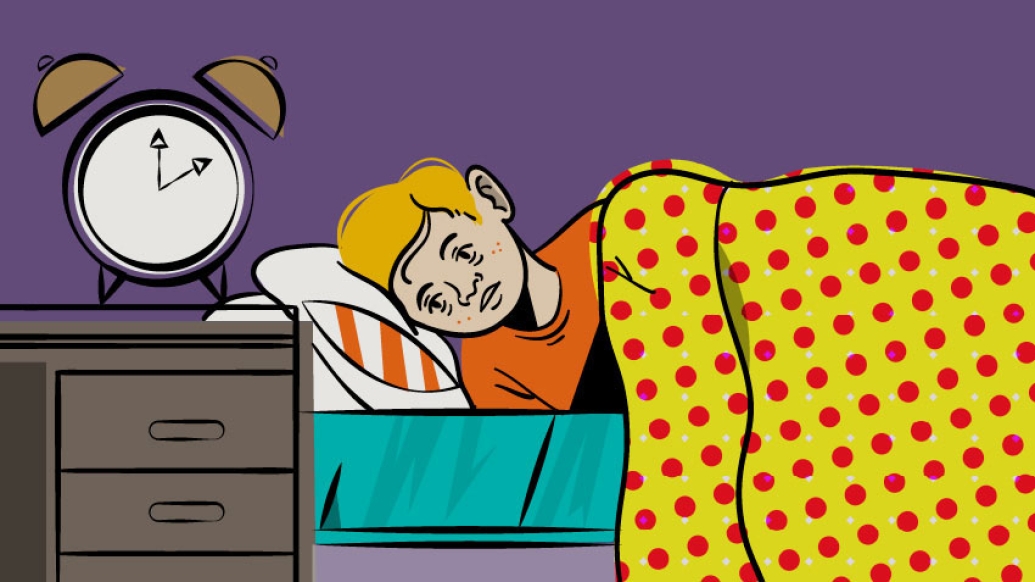Researchers compare experiences between Michigan families whose children were in-person, remote or hybrid school a year after the pandemic began.
5:00 AM
Author |

Millions of children spent months, even more than a year, attending school virtually from kitchen tables, bedrooms and laptops during the pandemic.
And this shift to computer-based learning may have led to negative consequences for younger kids, suggests a new Michigan Medicine study of a sample of families in Michigan.
Elementary school-aged children enrolled in remote learning experienced greater behavioral, learning-related, and sleep difficulties compared with children receiving in-person instruction, according to the findings in the Journal of Developmental and Behavioral Pediatrics.
Researchers surveyed roughly 300 parents with children ages 5 to 10 – ranging from kindergarten to fifth grade – across the state between February and March 2021.
MORE FROM THE LAB: Subscribe to our weekly newsletter
"In the early days of learning about how the virus spread and who was at risk, everyone made the best decisions they could with the information they had," said lead author Kimberley Levitt, M.D., developmental behavioral pediatrician at University of Michigan Health C.S. Mott Children's Hospital and Michigan Medicine researcher.
"We wanted to explore differences in parent and child well-being at a time when some school districts had returned to in-person school, while others remained remote or hybrid."
An estimated more than 55 million students in the U.S. were impacted by a change in school formats during spring 2020 in the COVID-19 pandemic, with many in fully remote school that school year.
Study authors said they focused on younger children who are still building foundational academic skills and require more adult support during instruction.
"We're now seeing the manifestation of these disruptions in families' lives and how different school formats affected our kids, not only academically but emotionally and socially," Levitt said.
"Our findings reinforce challenges families faced during the pandemic and suggest children in virtual school had more behavioral issues at home, social challenges with peers and may have potentially been less motivated to learn."
The new study is among few specifically examining how family well-being varied by school format.
Researchers compared several areas of health, including:
Behavior Problems
Children in remote school showed significantly more signs of hyperactivity, peer problems and overall behavior issues compared to those attending in-person school, the study suggests.
Among potential factors: Fast-changing demands and expectations as they navigated new school platforms and workloads. Adjusting to interactions with teachers and classes through screens. Being home for extended periods of time with fewer outlets to let off energy and less interaction with positive role models at school.
"COVID dramatically disrupted schedules," Levitt said. "There's a certain amount of comfort and safety in knowing what to expect and having routines to fall back on. In general, any sudden changes to routines can trigger stress and emotional dysregulation in kids."
"We want to be mindful of changes in family support systems and how we can support those children and families moving forward."
Our findings reinforce challenges families faced during the pandemic and suggest children in virtual school had more behavioral issues at home, social challenges with peers and may have potentially been less motivated to learn.Kimberley Levitt, M.D.
School Experiences
School was an overall more challenging experience for remote learners, researchers found.
Virtual school attendees were less likely to be academically motivated or socially engaged and more likely to show defiance and resistance in doing schoolwork.
"Remote learners appeared to be less excited about learning," Levitt said. "We know that children's enthusiasm and engagement in school helps predict how they cope with academic challenges throughout the year."
Families in both hybrid school and remote formats also reported children having more difficulties with socially relevant learning. Parents of remote learners were less likely to report that the teacher knew their child well or that the child knew their classmates well. They also were less likely to report their child was motivated to get ready for school in the morning, has enough opportunities to socialize, or has a best friend.
"Some kids experienced a loss in the school setting beyond academics. At these ages, many children develop friendships or even get a new best friend, hallmark childhood experiences," Levitt said.
"Children often build a sense of community, identity and independence from parents through classroom environments. But some children may have missed out on opportunities to further develop social skills through school interactions."
Sleep Challenges
Sleep issues were also common among the remote learning population. Kids ages five to 10 who attended virtual school were falling asleep later and were more likely to co- sleep with parents than those attending classes in person.
Compared to before the pandemic, about a third of parents said their child took longer to fall asleep, about a seventh reported more overnight awakenings, and more than a fifth said their child had more nightmares.
Among potential explanations: Greater anxiety and stress, increased screen time and exposure to certain types of media exposure or possibly increased family conflicts.
"We can't say for certain why these sleep disruptions are more prevalent among kids who attended remote school. There are several possible factors at play," Levitt said.
"Providers should consider tailoring interventions for families who would benefit from a sleep hygiene reset. We know disrupted and poor sleep can affect all areas of health, including mood, behavior and both physical and developmental growth as well as academic performance."
Potential Disparities
Researchers also looked at how school format related challenges differed for families with material hardships and stressors during the pandemic, such as food or housing insecurity, and whether structural inequities may have led to a greater burden of stress for underrepresented minorities.
Nearly a third of families surveyed included families from underrepresented racial or ethnic minorities. Underrepresented minority children were more likely to attend a remote school format than non-Hispanic white children, lining up with other studies.
Surprisingly, associations between remote learning and behavior difficulties were stronger for children without material hardships, researchers found.
"It's possible that families with material hardships may have more emotional and behavioral challenges at baseline associated with chronic poverty and structural and social inequities," Levitt said.
"Children with material hardships showed more behavior challenges overall, but less associated with school format. Parents may not have detected a noticeable difference in the home setting during remote learning, but we need further studies to understand how to better support these families."
Parent stress
Researchers didn't find any differences in parent depression or stress based on children's school format, but more than two fifths of parents overall reported elevated depressive symptoms.
But parents in previous studies have reported worsening mental health and more negative mood following COVID-19 associated restrictions.
Authors note that providers may consider screening parents for mental health concerns and material hardships to identify those who could benefit from community mental health resources and social work assistance.
"Children being home more due to remote learning was among several factors that likely impacted parental stress," said senior author Jenny Radesky M.D., a developmental behavioral pediatrician at Mott and researcher at Michigan Medicine.
"Many parents in our sample reported material hardships, such as poverty, job loss, and food insecurity and reported more parent-child conflict. We heard this from families we treat at Michigan Medicine, but our survey showed that the experience was widespread throughout Michigan.
"This school year, we hoped that things would improve with consistent in-person learning and increased educational funding," she added. "However, some children are still struggling behaviorally, and unfortunately, we are hearing that schools are not able to staff positions that support social-emotional health. We hope these results reinforce how important it is for schools to receive the support they need, so kids can heal after two challenging years."
Additional authors include Tiffany Munzer M.D., Chioma Torres M.D., Alexandria Schaller B.A. and Harlan McCaffery M.S., all of U-M.
Study Cited: "Remote and Hybrid Schooling during COVID-19: Associations with Child Behavior and Sleep," doi: 10.1097/DBP.0000000000001085.
Like Podcasts? Add the Michigan Medicine News Break on iTunes or anywhere you listen to podcasts.

Explore a variety of healthcare news & stories by visiting the Health Lab home page for more articles.

Department of Communication at Michigan Medicine
Want top health & research news weekly? Sign up for Health Lab’s newsletters today!





